To say Sudan’s Blue Nile state is “forgotten” wouldn’t be the right word. Most people have never heard of the place to begin with. The Sudanese civil war—which left millions dead of hunger and disease, leading to the secession and creation of South Sudan—isn’t over in Blue Nile. Wedged between Ethiopia and South Sudan, the rebel-held Blue Nile and its sister area to the west, the Nuba Mountains, still fight against the government led by President Omar al-Bashir, the only sitting head of state wanted on charges of crimes against humanity.
For over 50 years, an opposition party now known as the SPLA-N (Sudan People’s Liberation Army–North) fought al-Bashir and the affiliated paramilitary groups his government wrangles and bribes into joining their fight. The constant war and complete abandonment by the international community has created a humanitarian catastrophe. There is nothing in Blue Nile: no medical clinics, no schools, and no food. Two children have reportedly died of starvation in the past few weeks.
Videos by VICE
It is against this backdrop of violence that the women of Blue Nile persevere. They walk miles in 120 degree heat, carrying wood and water on their heads for cooking and cleaning; they dig foxholes to protect their families from aerial bombardment; they work in gold mines and fight on the front line as commanders, motivated by vengeance for their fallen sons and husbands.
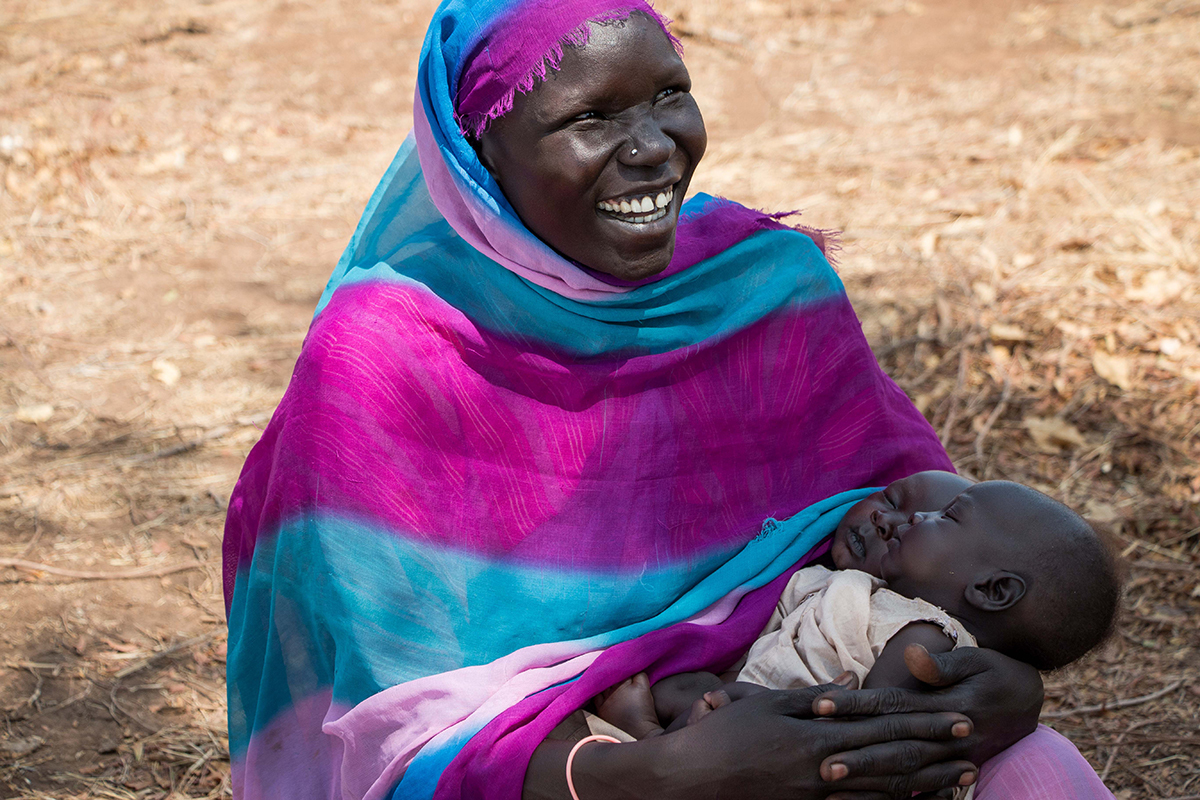
Mustra Mohammed. All photos by Ashley Hamer
Mustra Mohammed spent ten months on the road dodging gunfire and bombs before giving birth in Doro, one of the four refugee camps in South Sudan’s Maban county. The camps teem with about 135,000 refugees who have crossed the border seeking safety. Mohammed’s husband was killed in a shootout and four of her 11 children went missing over the time it took for her family to gradually make its way to the camps.
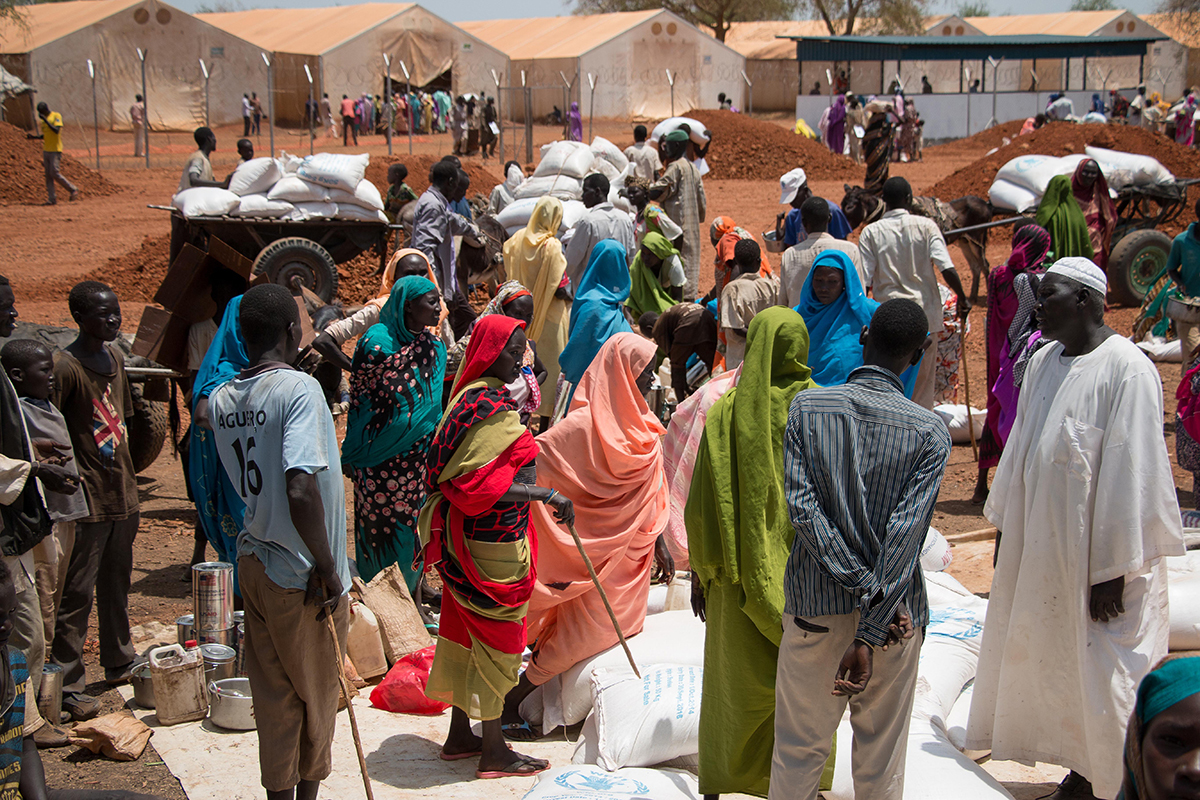
Refugees wait for food in Maban.
In the camps, women and men wait in line for food. Rations have been cut by 30 percent.The situation in Maban is desperate, not just for the refugees but also the South Sudanese host community. The residents are themselves painfully poor and receive no food aid. The cutting of rations has put a strain on everyone, increasing competition for farmable land and other resources. Refugee women have been sneaking into the forest to collect firewood, putting them at risk of violence or rape.
Kaltoum Adouma, pictured in the lede image, goes without meat and tea to save the few dollars needed to hitch a ride from the camps to Blue Nile. Her husband is dead; she plans to pick gum arabic to save money for transport back with her children. Because of the cut in rations and the tension between refugees and the host community, she plans to try her luck in the rebel-held territory.
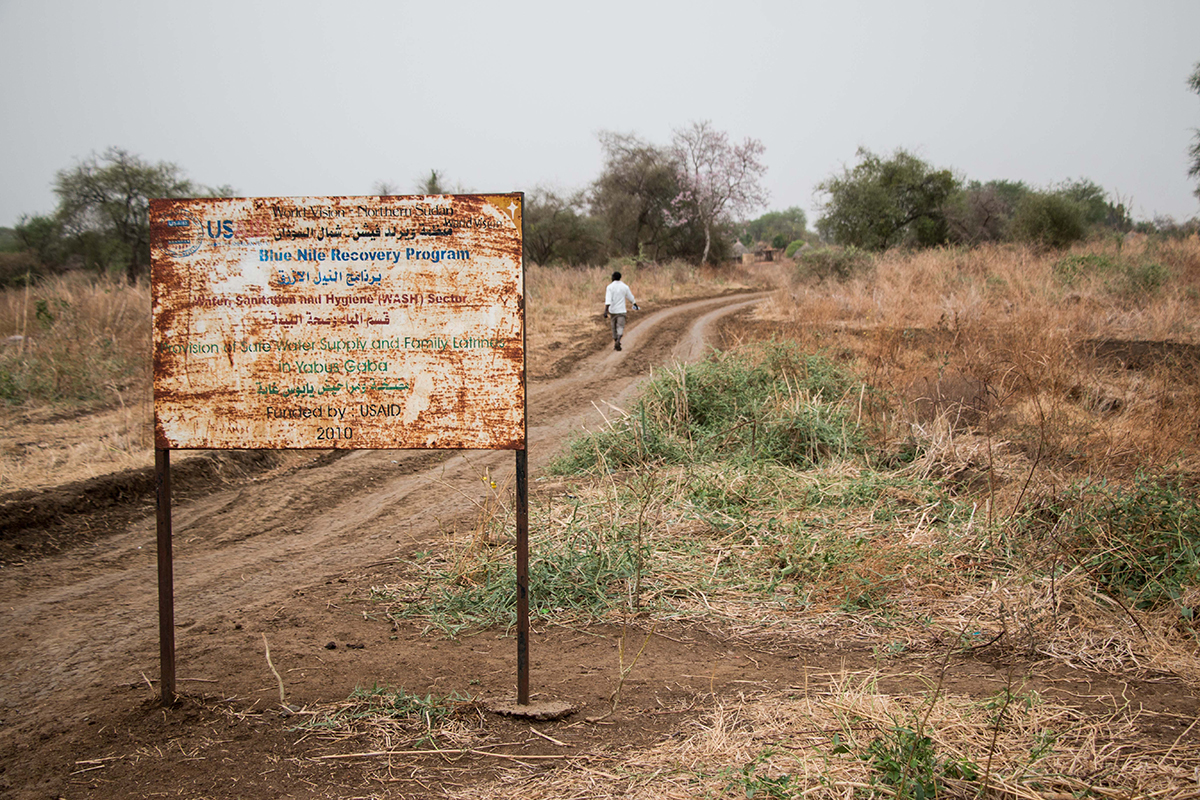
An old sign for Chali.
There are no concrete reports, but human rights monitors on the ground say more than 4,000 bombs have been dropped on SPLA-N-controlled territory in Blue Nile in the past five years. President Bashir’s decree that aid agencies inside the rebel-held Blue Nile would be considered opposition supporters—combined with the regular bombings of public spaces—motivated humanitarian organizations to leave the area. In the 70s, Chali, the town marked out by this withered sign, was home to a humming market and even a functioning airstrip. Today the area is so destitute that even scraps of garbage are valuable.
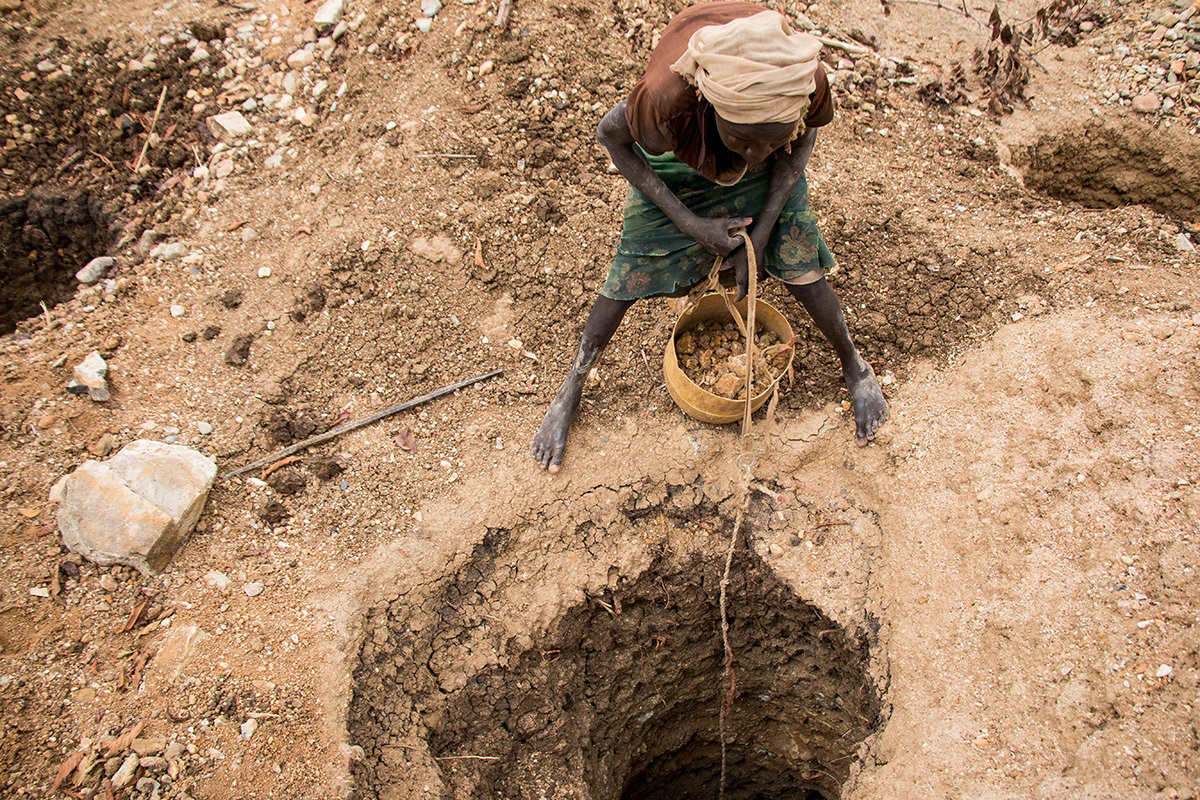
A young woman mining for gold.
Blue Nile is rich in gold, oil, and gum arabic, the viscous substance used in products from Diet Coke to cosmetics. The distribution of natural wealth is one of the main tenets of the conflict. In the meantime, an informal mining industry keeps many families fed—but barely. A young woman (above) hauls rubble out of a 16 foot pit into a hand-fashioned bucket that strains under the dirt and soil. She’ll carry the load to a shallow pool created with water lugged from a nearby well. There, she’ll sit in the mud and span for gold specks.
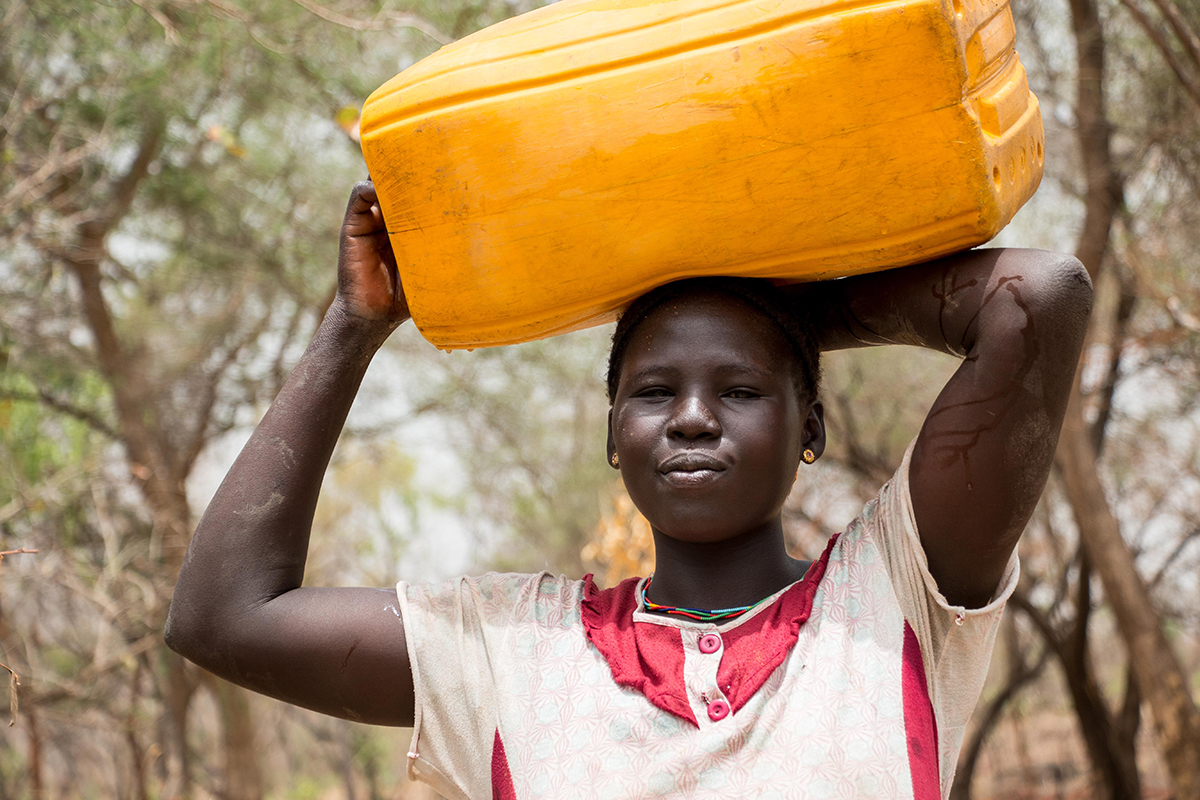
Nawah Hasan is 23 and five months pregnant.
Twenty-three-year-old Nawah Hasan is five months pregnant as she carries jugs of water at the mines in Abangaro outside Yabus, the de facto capital of Blue Nile. Hasan already has two children; she will work at the mines from first light to dark everyday. The land in Abangaro looks like a board game: flat red earth dotted with deep holes. The women try to keep their children from walking around, for fear they will fall into the dark abysses.
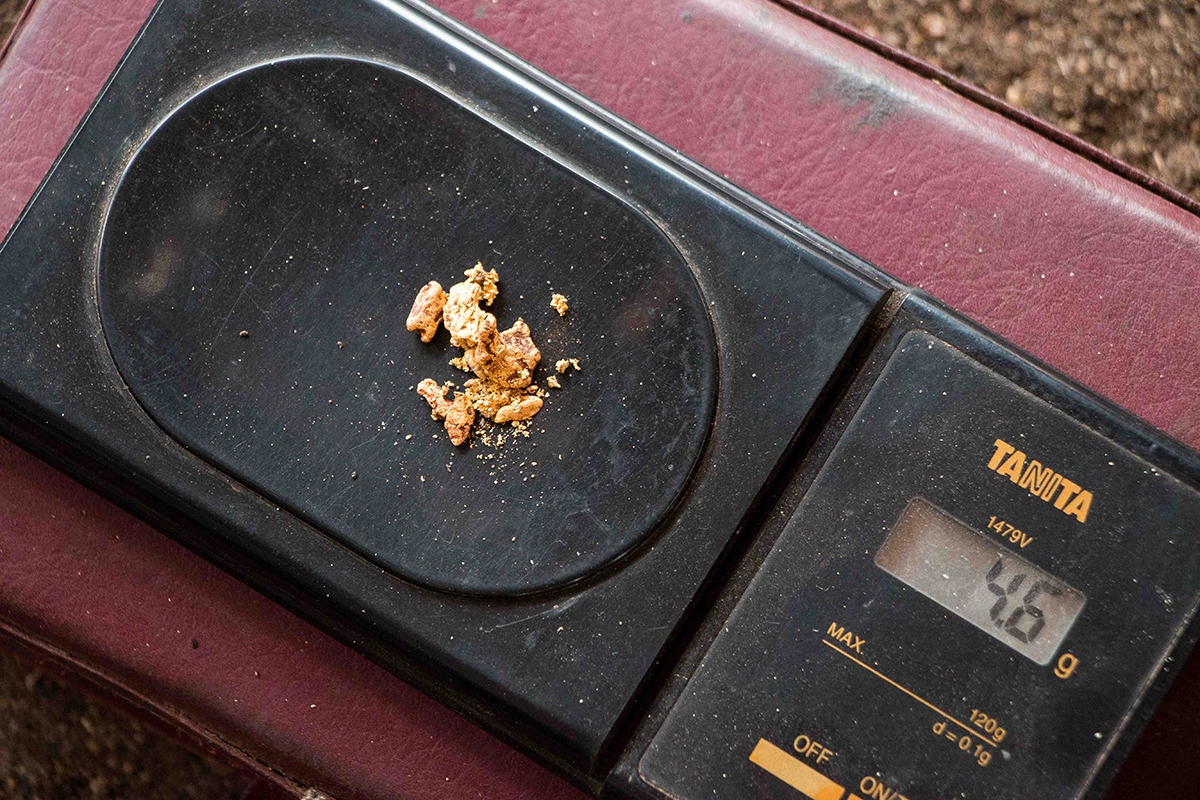
Gold can be sold or traded for sorghum, a type of grain.
The tiny nuggets of gold are the fruits of days of labor. They are sold for Ethiopian birr or traded for sorghum that can cooked. At best, gold is found a couple of times a week. Awadua Asaud works at the mines every day. She last sold her findings to a trader for 60 birr ($2.70).
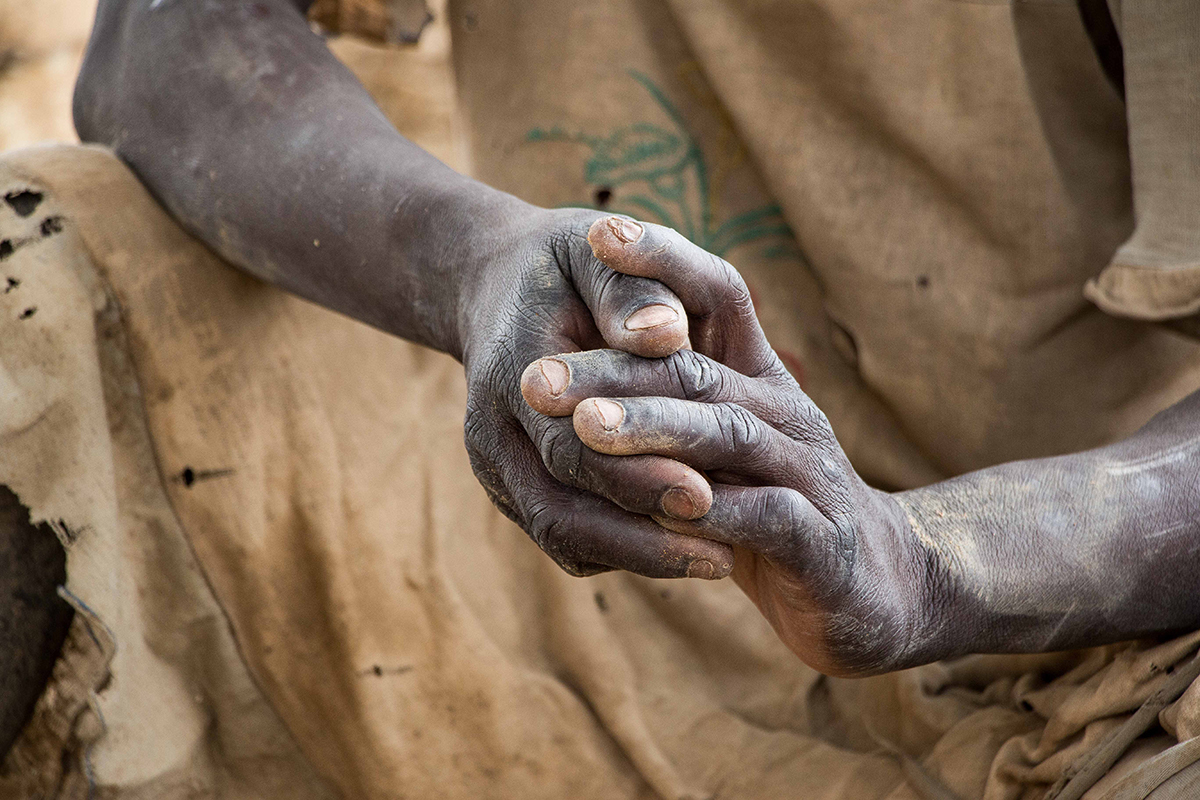
Awadua Asaud works at the mines every single day.
“This is dangerous [work],” Asaud explains. The deep holes sometimes collapse, though she fears the sky more than the earth: Antonov bombers have never directly hit the site, but they have come very close.
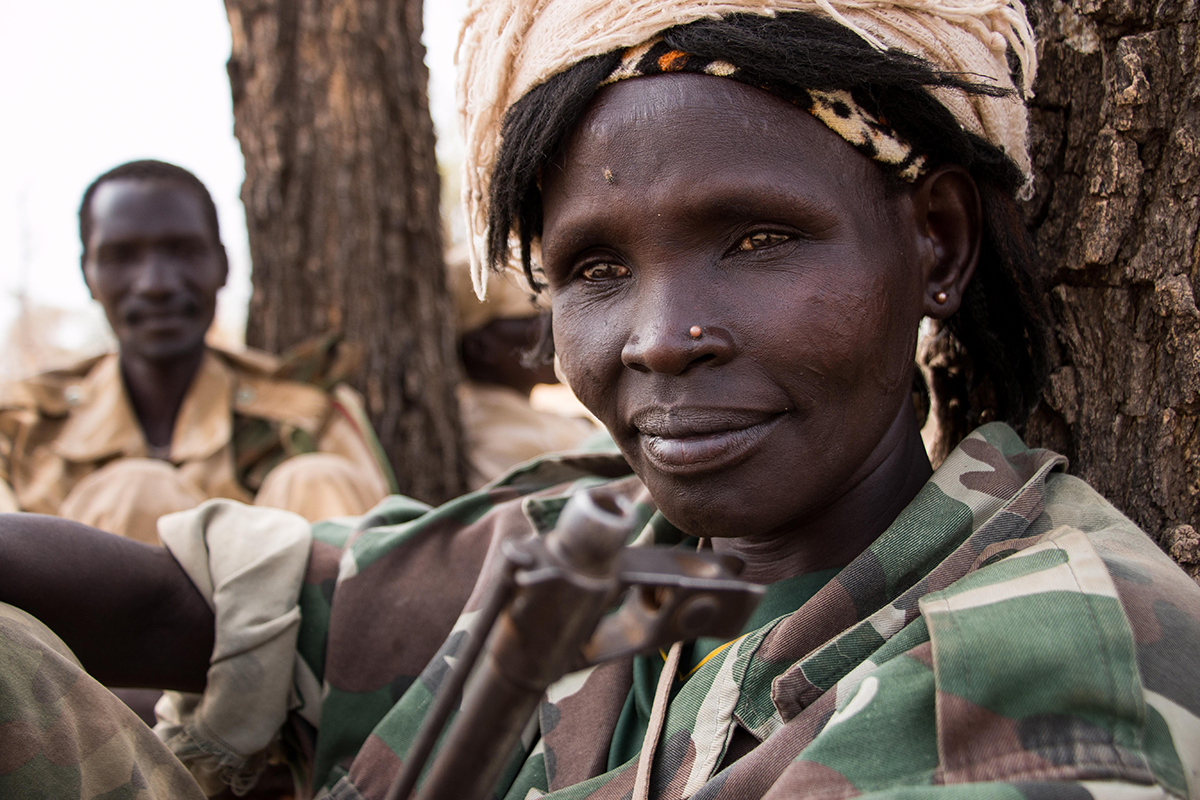
Major General Buta.
Women are active in SPLA-N ranks as fighters and commanders. Major General Buta led several battles and a major liberation against government forces. SPLA-N representatives claim they get all their weapons and gear from raids on the army.
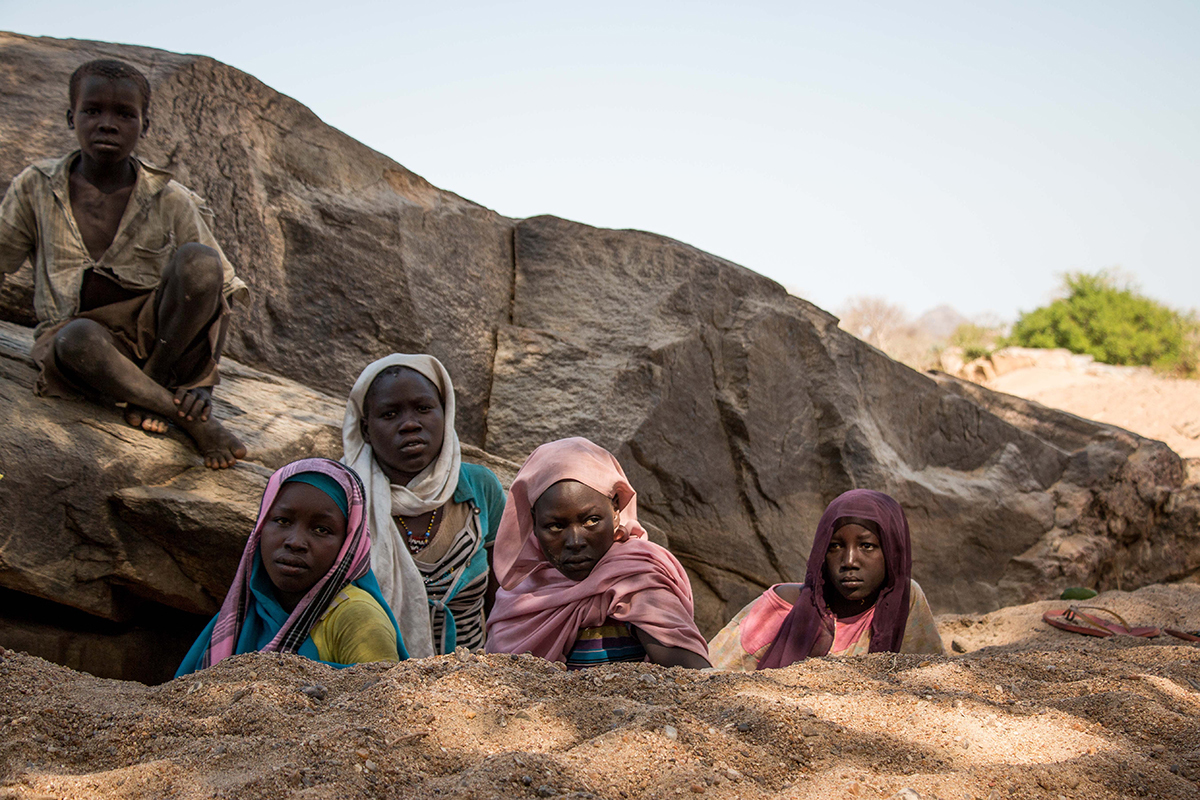
Women in a dry riverbed in Mayak.
Outside Mayak, a frontline town in southern Blue Nile, young women spend their days in dry riverbeds. The trees hanging over the banks offer shade, and dugouts around the rocks provide some shelter from the heat.
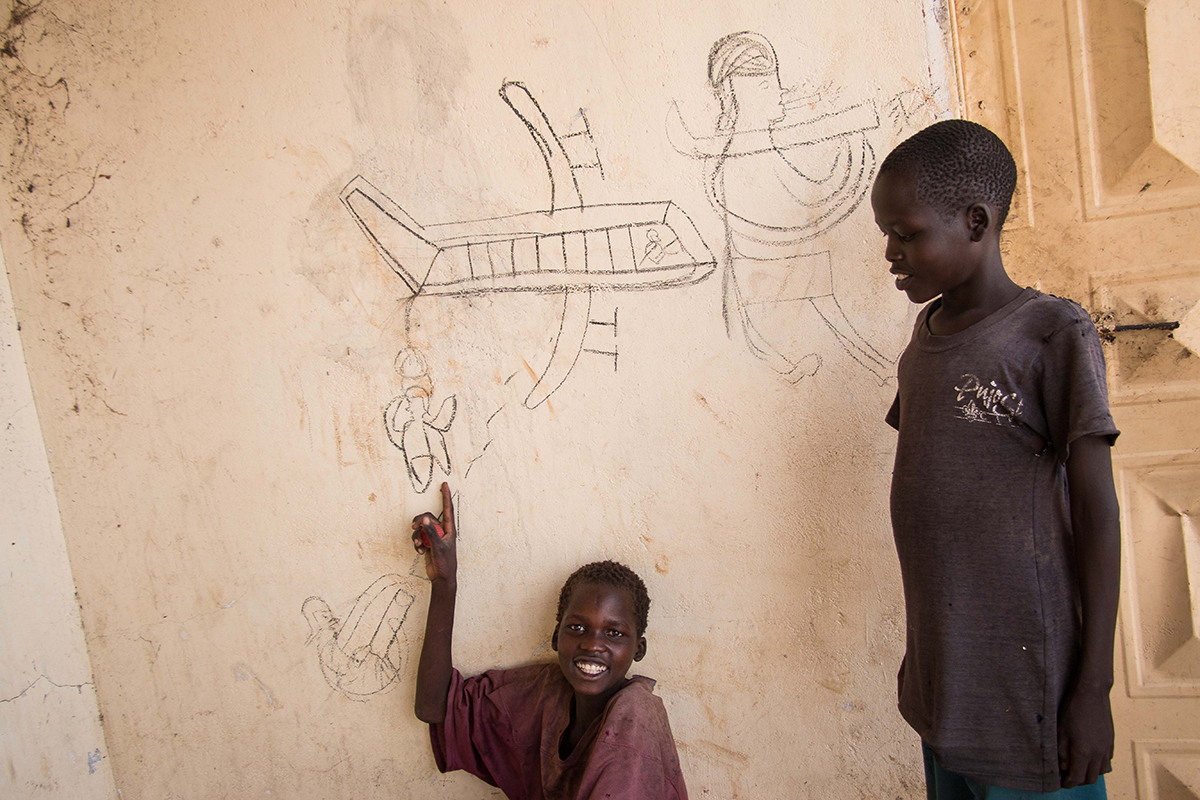
Children point to graffiti of bombs and war.
Graffiti, especially pictures of planes and guns, is scrawled on many of the bombed-out buildings in Blue Nile. None of the children are in school. Their mothers fear for their progeny’s future, and always seem relieved to see them smile. The men leading the Sudanese government and those leading the opposition have convened about a dozen times in Addis Ababa, Ethiopia over the past five years in attempts to come to a peace agreement. Unlike the unyielding women of Blue Nile, these talks have failed to endure.
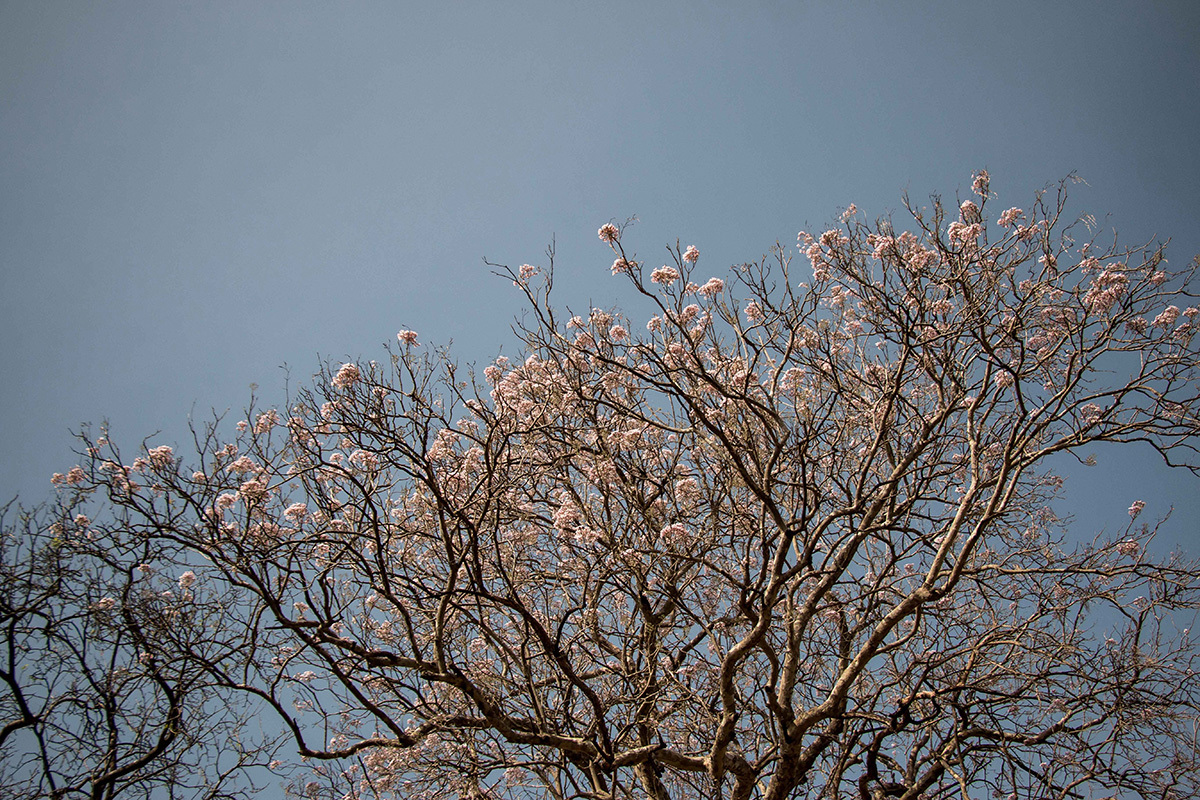
Trees blossom along the Yabus river in Blue Nile.
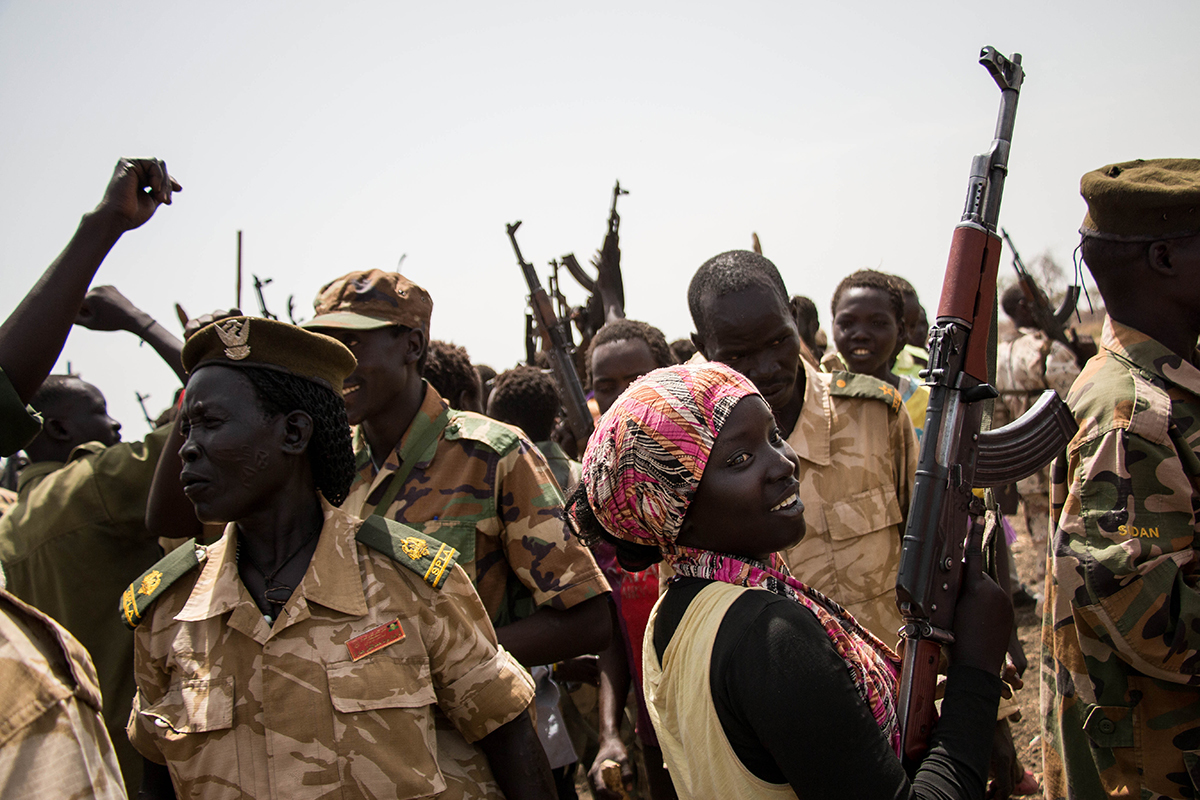
Major General Buta celebrates at a graduation ceremony for new soldiers.
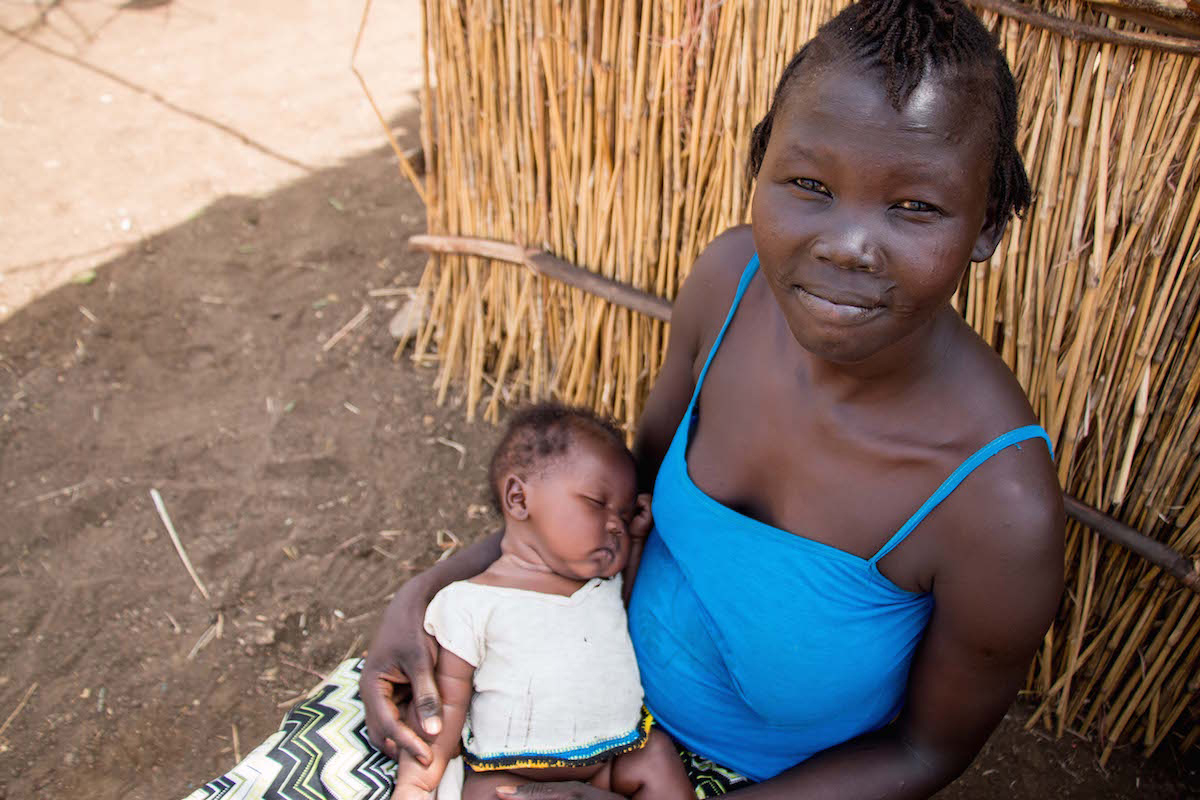
An old latrine serves as a foxhole for this mother and baby when bomber jets fly over Chali.
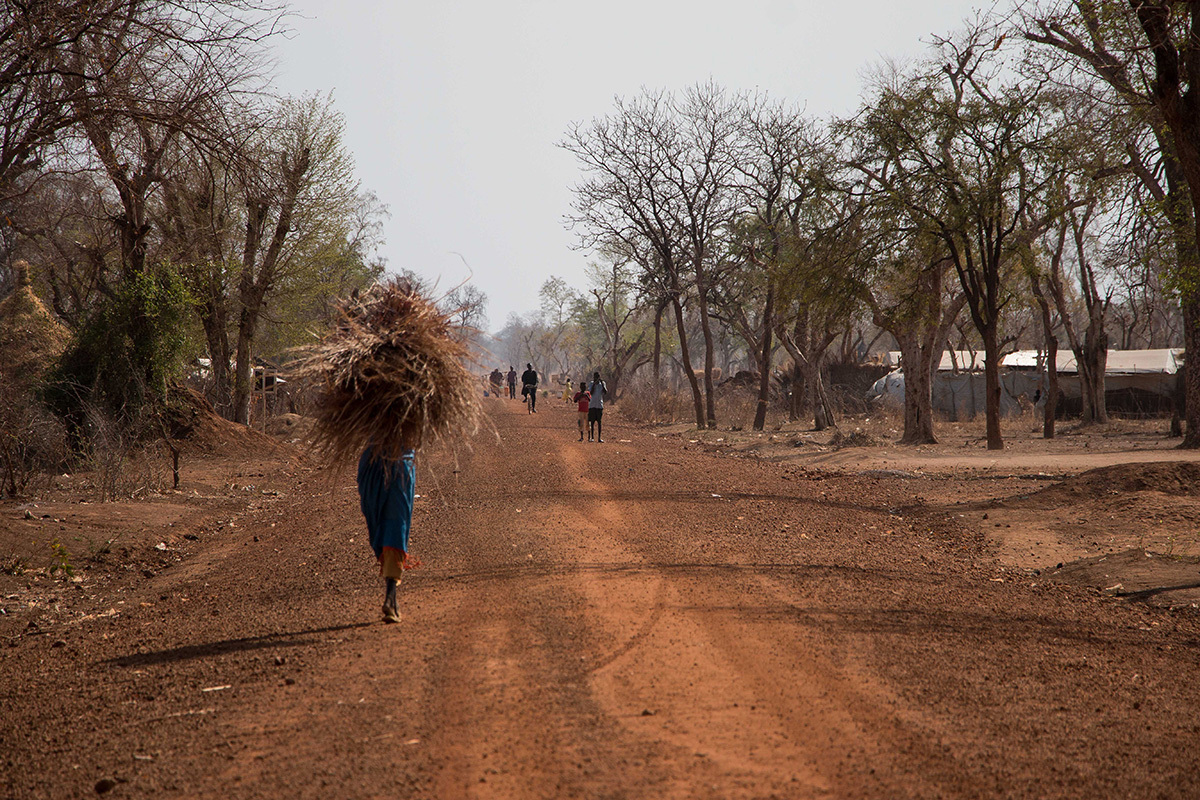
The most recent iteration of the civil war began in 2011.
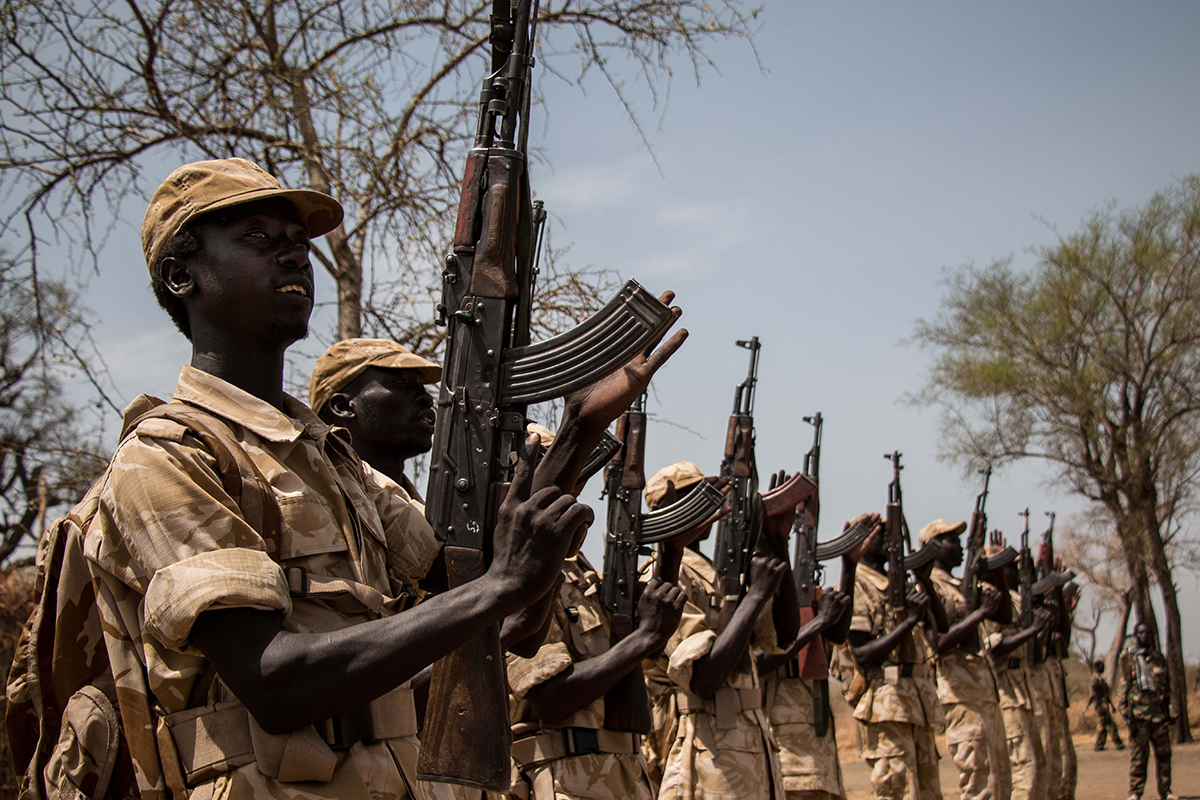
SPLA-N soldiers stand at attention and sing in Forge, the military capital of the opposition.
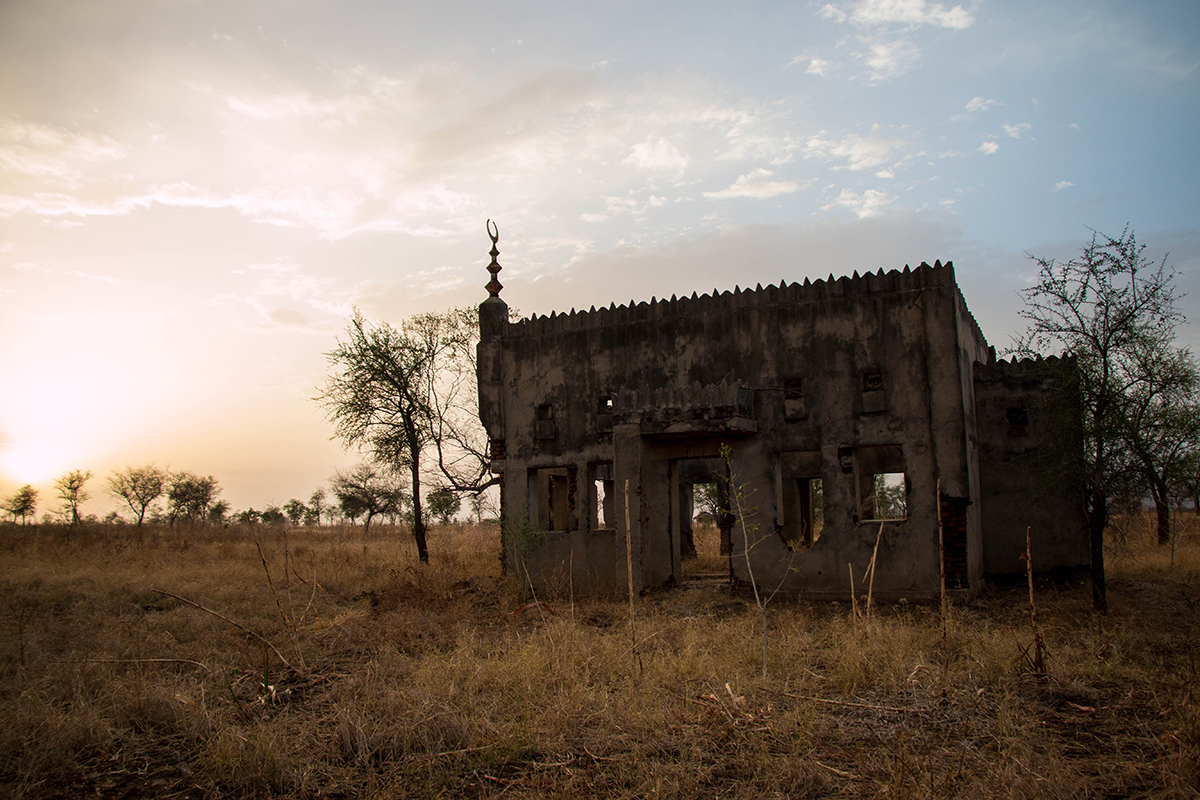
Blue Nile is a graveyard of buildings, homes, and cars that have been bombed and burnt. In Chali, children play in the ruins.




